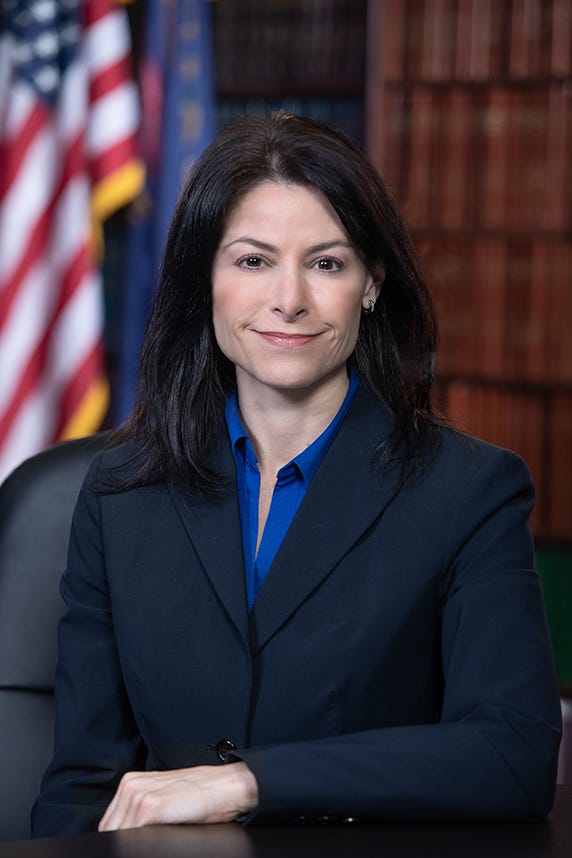Michigan judge nullifies part of state’s ballot drive law
Lansing — A Michigan judge has struck down a new requirement that makes it harder to initiate ballot drives by limiting the number of signatures that can be counted from a single congressional district.

Court of Claims Judge Cynthia Stephens said the state constitution does not allow the geographic limit that was approved by the Republican-led Legislature and then-Gov. Rick Snyder in last year’s lame-duck session.
The law says no more than 15% of petition signatures can be used from any one of the state’s 14 congressional districts — a restriction that prevents ballot committees from solely targeting the most heavily populated, more Democratic urban areas.
“The effect of the 15% geographic limitation would undoubtedly drive petition circulators from the state’s population hubs and would impede circulators’ abilities to satisfy the Constitution’s signature requirements,” Stephens wrote in her opinion .
She also nullified a new requirement that each petition indicate whether a circulator is paid or a volunteer. Stephens, who was appointed by Democratic former Gov. Jennifer Granholm, let other portions of the law stand, including a requirement that paid gatherers file an affidavit with the secretary of state and the invalidation of signatures that do not meet technical requirements.
The ruling maintained protections in the Michigan Constitution and First Amendment, said Secretary of State Jocelyn Benson's office, against which the lawsuit had been filed,
"We are glad that today’s ruling upheld key portions of the attorney general’s opinion," Benson's spokesman Shawn Starkey said. "As directed by the judge, we will continue to follow the guidelines of the entire attorney general’s opinion while the expected appeals proceed through court."
Attorney General Dana Nessel's office was pleased with the judge's ruling, said spokeswoman Kelly Rossman-McKinney. “...the judge concluded, as did our office , that several sections of 2018 PA 608 unconstitutionally burdened the rights of Michigan citizens to petition for changes to our laws and Constitution.”
In her Friday opinion, Stephens dismissed a lawsuit filed by the House and Senate because they "lack standing," but allowed their filings to be treated as amicus briefs in a similar case filed by the League of Women Voters of Michigan.
The league's lawsuit filed in May argued lawmakers could not amend the constitution with legislation and contended the 15% requirement would dramatically increase the cost and difficulty of mounting successful citizen petition campaigns.
"The league is very pleased that, with the judge’s decision today, the significant barriers have been removed and the rights of voters to petition their government have been vindicated," said Mark Brewer, who is representing the league in the lawsuit.
The law was backed by business groups and GOP legislators who say it adds transparency and accountability to the petition-gathering process and ensures statewide input earlier on ballot drives funded by out-of-state interests.
Nessel previously said the 15% limit and other portions of the law are unconstitutional. State election officials will comply with her opinion unless an appellate court issues orders otherwise.
Two anti-abortion ballot committees in Michigan are gathering petition signatures under the guidance issued in Nessel's opinion and will continue to do so while the case is on appeal.
Republicans, who still control the Legislature while Democrat Gretchen Whitmer is governor, approved the law in December — a month after voters passed three Democratic-backed proposals to legalize marijuana for recreational use, curtail the gerrymandering of congressional and legislative districts and expand voting options.
To make the ballot in 2020 or 2022, groups proposing a constitutional amendment must submit 425,000 signatures. The threshold is 340,000 for an initiative and 212,000 for a referendum.
Detroit News reporter Beth LeBlanc contributed